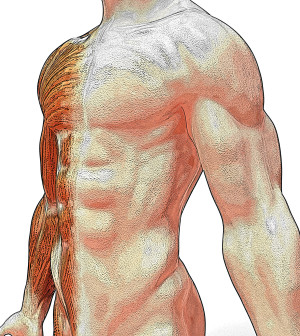- Could Your Grocery Store Meat Be Causing Recurring UTIs?
- Are You Making This Expensive Thermostat Error This Winter?
- Recognizing the Signs of Hypothyroidism
- 10 Strategies to Overcome Insomnia
- Could Artificial Sweeteners Be Aging the Brain Faster?
- Techniques for Soothing Your Nervous System
- Does the Water in Your House Smell Funny? Here’s Why
- Can a Daily Dose of Apple Cider Vinegar Actually Aid Weight Loss?
- 6 Health Beverages That Can Actually Spike Your Blood Sugar
- Treatment Options for Social Anxiety Disorder
Brain Scans May Shed Light on Bipolar Disorder-Suicide Risk

Among teens and young adults with bipolar disorder, researchers have linked brain differences to an increased suicide risk.
About half of people with bipolar disorder — marked by extreme mood swings — attempt suicide and as many as one in five dies by suicide, the study authors said.
For the new study, teens and young adults with bipolar disorder underwent brain scans. Compared with those who had not attempted suicide, those who had attempted suicide had slightly less volume and activity in areas of the brain that regulate emotion and impulses, and in the white matter that connects those areas.
“The findings suggest that the frontal cortex is not working as well as it should to regulate the circuitry,” said study senior author Dr. Hilary Blumberg.
“That can lead to more extreme emotional pain, difficulties in generating alternate solutions to suicide and greater likelihood of acting on suicidal impulses,” she said.
Blumberg is a professor of psychiatric neuroscience, psychiatry, radiology and biomedical imaging at Yale University in New Haven, Conn.
“Suicide is a leading cause of death of adolescents and young adults, and we can’t move on this issue fast enough,” she said in a university news release. “The identification of brain circuits involved in risk for suicide can lead to new ways to identify who is most at risk and, hopefully, prevent suicides.”
The study was published Jan. 31 in the American Journal of Psychiatry.
More information
The U.S. National Institute of Mental Health has more on bipolar disorder.
Source: HealthDay
Copyright © 2026 HealthDay. All rights reserved.










